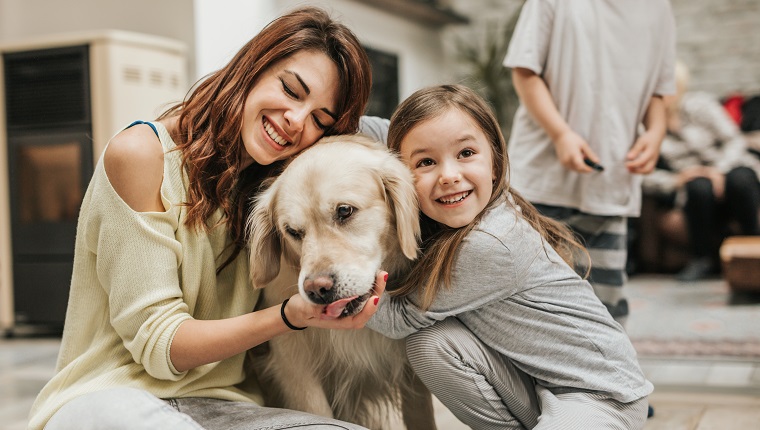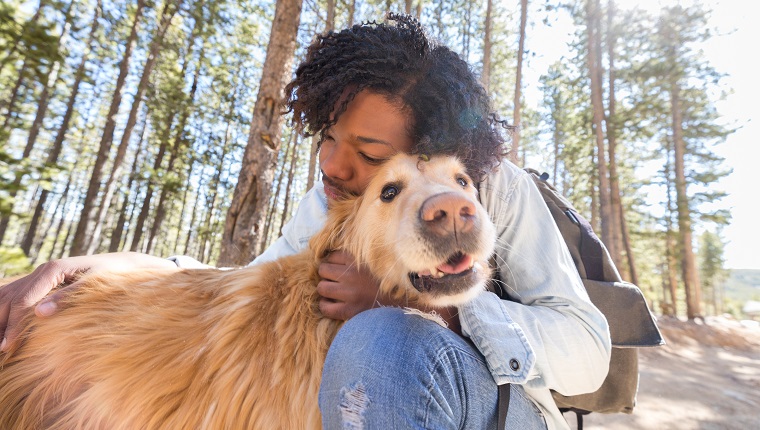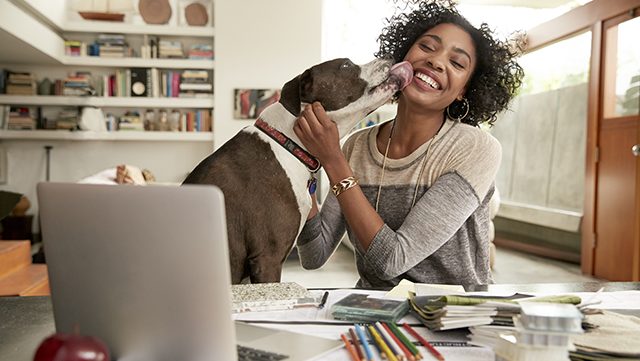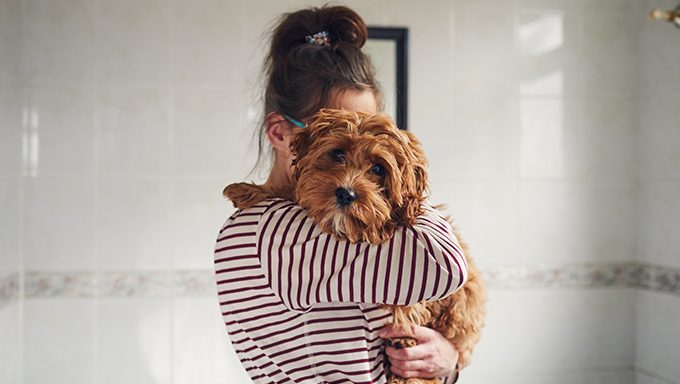The first Wednesday in November is officially International Stress Awareness Day. That’s November 3rd in 2021. Since 1988, the International Stress Management Association has brought awareness to stressors that can put a strain on our mental health.
There’s no denying that being a dog parent can have its stressful moments. But did you know that there are loads of things our dogs do to help alleviate our stress?
There are some obvious ways dogs help us with our stress, like when they give us unconditional love. However, there are some less-than-obvious ways our pups help keep stress to a minimum, too. Here are a few.
How does your dog help reduce your stress? Are you going to relax with your dog on International Stress Awareness Day? Let us know in the comments below!
Ways Your Dog Helps Reduce Your Stress
-
They Help Your Body Release Oxytocin

(Picture Credit: skynesher/Getty Images)
Humans have been breeding dogs as companions for thousands of years. Due to centuries of close bonds, dogs and humans have co-evolved.
According to the 2015 paper "Oxytocin-gaze positive loop and the coevolution of human-dog bonds," published in the journal Science, this bond creates a positive loop between human and dog, namely due to the release of the "love hormone" oxytocin.
According to the study, "gazing behavior from dogs," AKA that lovin' look you get from your pup, "increased urinary oxytocin concentrations in owners, which consequently facilitated owners' affiliation and increased oxytocin concentration in dogs."
This means that your dog literally helps your body produce feel-good chemicals. Oxytocin helps lower blood pressure, decrease cortisol levels, and maintain homeostasis when your body is in crisis.
-
They Encourage You To Get Moderate Exercise

(Picture Credit: Getty Images)
According to the CDC, only 23 percent of Americans get enough exercise. The organization recommends that adults get 150 minutes of moderate exercise or 75 minutes of vigorous exercise per week.
Luckily, if you have a dog, those 150 moderate minutes are likely covered. By walking your dog three to four times a day, between ten to 15 minutes at a time, you are getting a healthy amount of walking in!
If you need to let off stress, consider upping the pace with your pup to get those endorphins flowing.
-
They Provide Structure

(Picture Credit: SDI Productions/Getty Images)
When it comes to crippling stress, such as overwhelming depression or anxiety, having a dog can help keep you on track and in a routine.
For those who struggle with mental health issues, it can be difficult just getting out of bed, let alone keeping up with a job, relationships, or school work.
Fortunately, having a dog can help keep a person from slipping too deep. According to the National Alliance on Mental Illness, research shows that having the responsibility of caring for a pet can keep your life structured.
Unlike a relationship with a human, dogs need you for everything. Caring for them can help those who feel stuck or lost at times.
-
Dogs Help You Meet People

(Picture Credit: Getty Images)
A study of nearly 20,000 American adults found that nearly half of those surveyed reported feelings of loneliness.
This feeling of isolation can be stressful and lead to a host of mental health issues. But if you have a dog, it can be much easier to meet people, or at least get a friendly wave from fellow dog parents.
Between dog walks, hanging out at the dog park, or even going to a training session, there are lots of ways your pup can help you meet human friends, too!
-
Pets Decrease Stress Responses In Tense Situations

(Picture Credit: Dougal Waters/Getty Images)
Yes, your dog can help lower your blood pressure and release feel-good hormones, but did you know they can help in the moment of stressful situations, too?
A study at the University of Buffalo found that people who had to solve an arithmetic problem in front of a dog had a lower heart rate and stress response level than those who had to perform the same task in front of a spouse.
If you've been feeling stressed at work, maybe you should present this study to your boss and argue for a dog-friendly workplace.







